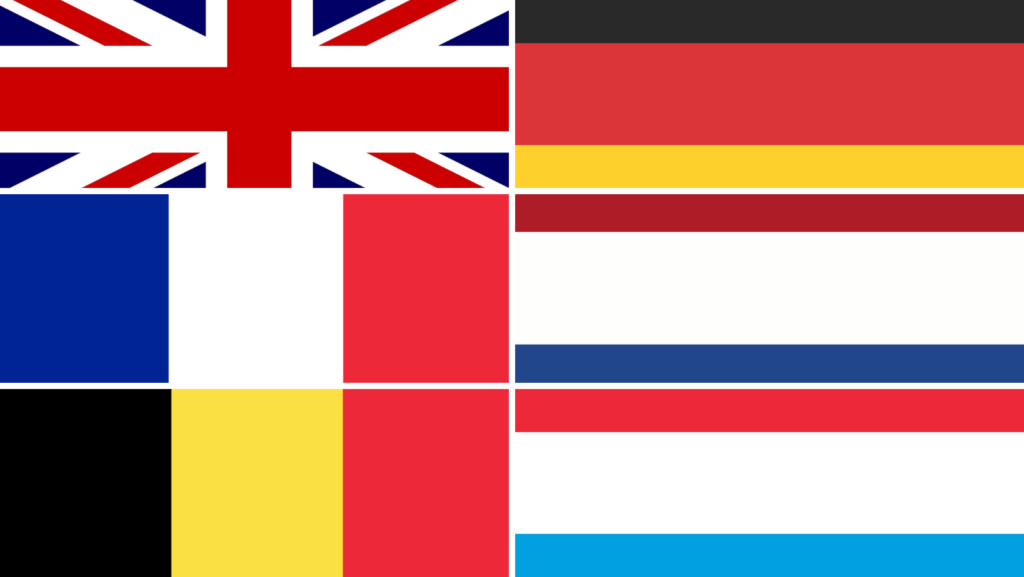The vaccination campaign in Belgium reached a milestone on 12 April, as more than one-fifth of the adult population has received at least one coronavirus vaccine.
But what does that mean in the context of Belgium's neighbours? As different countries vaccinate their population at different speeds and using different strategies, it can be difficult to keep track of where Belgium's vaccination figures fall in the broader context.
With that in mind, here's how Belgium's figures stack up against other countries, based on the most recently available data as of 13 April, 2021.
In Belgium, 1,882,165 people received at least one dose of a coronavirus vaccine, around 16.4% of the population as a whole, or 20.5% of the adult population, according to figures from 12 April from the Sciensano health institute.
Meanwhile, 621,653 people – 6.7% of the adult population and 5.4% of the total population – have been fully vaccinated.
Wallonia and the German-speaking region of Belgium both currently have the largest rollout of the country, with 21% of people aged over 18 having received at least one dose. This is followed by Flanders (20.8%) and Brussels (15.9%).
By the end of 13 April, 2 million people in Belgium will have received the first dose of a coronavirus vaccine, according to Gudrun Briat of the Vaccination Taskforce.
Belgium decided on 7 April to adjust the use of the AstraZeneca vaccine after the European Medicines Agency found a possible link between very rare cases of unusual blood clots and the dose, and will only be administering it in people aged 56 and over.
This change, however, is expected to have little impact on the country's vaccination campaign, according to health ministers Frank Vandenbroucke and Wouter Beke.
As of 12 Apil, a total of 18,684,873 people in Germany have received at least one coronavirus vaccine, around 22.3% of its entire population, according to figures from the Robert Koch Institute (RKI), the German equivalent of the Sciensano health institute.
Figures from 12 April showed that 5,117,056 people, or 6.2% of the total population, have been given two vaccines.
On 7 April, Germany administered a record number of 656,000 coronavirus vaccinations in one day, according to figures from RKI, after general practitioners joined the vaccination campaign.
Germany restricted the use of the AstraZeneca vaccine to people above the age of 60. It has said that people under this age should be given a different second vaccine, despite the fact that the World Health Organisation (WHO) stated that it does not yet have sufficient data to make reliable statements about such a “vaccine switch.”
As of 12 April, 11,030,780 people received at least one injection, around 21% of the adult population and 16.5% of the total population, according to official figures by the French authorities.
Additionally, 3,833,501 people, around 7.3% of the adult population or 5.7% of the total population, have received two injections.
On 19 March, the French authorities decided to stop administering AstraZeneca's vaccines to people under 56 years old, the same age limit as Belgium, and health officials also said the around 533,000 people under that age who have had their first AstraZeneca dose would be offered a different second vaccine.
There are no official figures on the number of people who have received a first dose of a coronavirus vaccine in the Netherlands, but according to the Dutch government, 3,182,836 vaccines had been administered by April 10. Figures from Our World in Data’s vaccination tracker found that, as of 4 April, over 12% of the total population had received at least one dose.
The Dutch authorities said they started administering second doses on 27 January this year (meaning that the number of vaccinations is higher than the number of people being vaccinated), but they do not provide data to clarify how many people received a second dose.
"As soon as automated figures are available about the number of people who have been fully vaccinated, these will be shown on the dashboard," the Dutch authorities state on their website.
On 2 April, the Netherlands decided to temporarily halt the use of AstraZeneca in people under the age of 60, pending further information from the EMA.
On April 12, 96,054 people in the Grand Duchy of Luxembourg had received at least one dose of a coronavirus vaccine, around 17.6% of its adult population, according to the country's latest figures.
Meanwhile, 34,225 received their second shot, about 5.6% of the total population.
Based on the scientific assessment by the EMA, "Luxembourg has decided to continue to administer the AstraZeneca vaccine without distinction of age and gender" the government's Ministery of Health announced on 8 April.
A total of 32,190,576 people had received the first dose of a Covid-19 vaccine as of 12 April, around 61.1% of the adult population and 48% of the total population, according to the government's website. Meanwhile, 7,656,205 have been fully vaccinated, the equivalent of 14.5% of the adult population, and around 12% of the total population.
More specifically per region, Wales has the largest vaccination rollout, as 62.9% of the adult population has received at least one dose, followed by 61.2% in England, 60.2% in Scotland, and 56.9% in Northern Ireland.
As a result of its successful vaccination campaign, and the decrease in daily infections, the government announced its“roadmap to freedom” at the end of February, which could see England lift its last restrictions, and re-open clubs, and re-start large events, by 21 June at the earliest.
The UK has also restricted the use of AstraZeneca’s coronavirus vaccine, and will only be administering the dose in people over the age of 30, the Joint Committee on Vaccination and Immunisation announced on 7 April.
Lauren Walker, Maïthé Chini & Lisa Poppe
The Brussels Times







